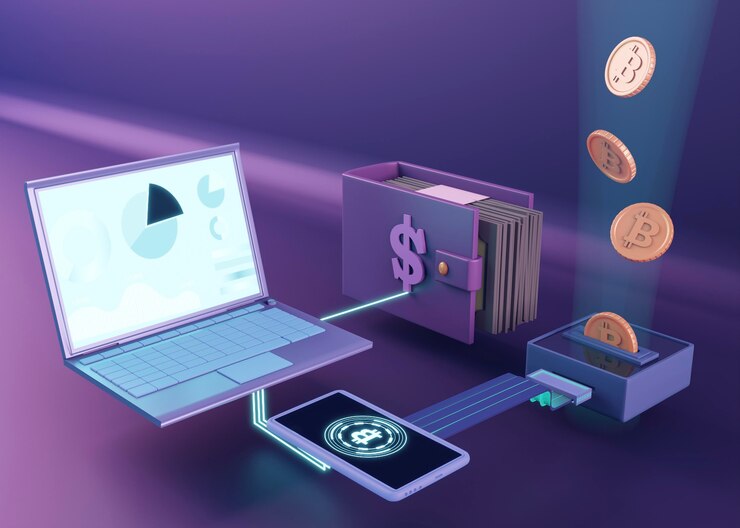What Are Crypto Trading Platforms?
A crypto trading platform is a digital marketplace where users can buy, sell, and trade cryptocurrencies like Bitcoin, Ethereum, and many others. These platforms act as intermediaries, connecting buyers and sellers while providing tools to facilitate trades.
The Ultimate Guide to Crypto Trading Platforms
Are you diving into the exciting world of cryptocurrency? To start trading digital assets, you’ll need a reliable crypto trading platform. This guide will walk you through everything you need to know about these platforms, including features, types, risks, and how to choose the right one.
Why Use a Crypto Trading Platform?
Crypto trading platforms provide:
● Convenience: Access global crypto markets anytime, anywhere.
● Tools and Features: From real-time charts to advanced analytics.
● Liquidity: Ensuring trades are executed quickly and efficiently.
Key Features to Look for in a Crypto Trading Platform
Not all platforms are created equal. Here’s what to prioritize when choosing one:
Security Measures
Look for platforms with robust security protocols, like two-factor authentication (2FA), cold storage for assets, and insurance against breaches.
User Interface and Experience
A beginner-friendly platform with an intuitive design can make trading less intimidating, especially for new traders.
Supported Cryptocurrencies
Ensure the platform supports the cryptocurrencies you want to trade. Some focus on popular coins like Bitcoin, while others offer access to hundreds of altcoins.
Trading Fees and Costs
Check for transparent fee structures, including deposit, withdrawal, and trading fees, to avoid unexpected costs.
Mobile Accessibility
A mobile app is essential for trading on the go, enabling you to manage your portfolio anytime.
Types of Crypto Trading Platforms
Understanding the types of platforms can help you decide which one suits your needs.
Centralized Exchanges (CEXs)
These are managed by a central authority, offering high liquidity and advanced features. Popular examples include Binance and Coinbase.
Decentralized Exchanges (DEXs)
DEXs operate without intermediaries, allowing peer-to-peer trading directly on the blockchain. They prioritize privacy and decentralization but may have lower liquidity.

Hybrid Exchanges
Combining features of CEXs and DEXs, hybrid exchanges aim to offer the best of both worlds: enhanced security and usability.
Top Crypto Trading Platforms to Consider
Here are some of the best platforms for trading crypto:
Binance
Known for low fees, a wide range of cryptocurrencies, and advanced trading tools, Binance is a favorite among experienced traders.
Coinbase
Perfect for beginners, Coinbase offers an easy-to-use interface and robust security features.
Kraken
Kraken is well-regarded for its transparency, strong security measures, and support for a wide range of digital assets.
KuCoin
KuCoin offers access to lesser-known altcoins, competitive fees, and a rewards program for active users.
How to Choose the Right Crypto Trading Platform
With so many platforms available, how do you pick the right one? Here’s how:
Identify Your Trading Goals
Are you day trading or investing long-term? Your goals will dictate the features and tools you need.
Assess Platform Reputation
Research reviews, user feedback, and security track records to ensure the platform is trustworthy.
Easy Access to Crypto Markets
Platforms provide a seamless way to buy, sell, and trade cryptocurrencies without needing technical expertise.
Advanced Trading Tools
From charting tools to automated bots, platforms offer features that help traders make informed decisions.
Cybersecurity Threats
Hacks and breaches can lead to significant losses. Always choose platforms with strong security measures.
Hidden Fees
Some platforms have fees that aren’t immediately apparent. Always read the fine print to avoid surprises.
Learn Basic Trading Strategies
Familiarize yourself with concepts like stop-loss orders, market trends, and risk management.
FAQs About Crypto Trading Platforms
Q1: Are crypto trading platforms safe?
Most reputable platforms are secure, but risks remain. Use strong passwords and enable 2FA for added protection.
Q2: Do I need to verify my identity to use a trading platform?
Many platforms require identity verification for regulatory compliance, though some DEXs allow anonymous trading.
Q3: What’s the difference between a wallet and a trading platform?
A wallet stores your crypto securely, while a trading platform is used for buying and selling.
Q4: Can I trade crypto 24/7?
Yes, cryptocurrency markets are open 24/7, unlike traditional stock markets.
Q5: What’s the minimum amount to start trading crypto?
Most platforms have low minimums, allowing you to start with as little as $10 or equivalent.
This guide to crypto trading platforms equips you with the knowledge to navigate the world of cryptocurrency confidently and securely. Whether you’re a beginner or a seasoned trader, choosing the right platform can make all the difference.
